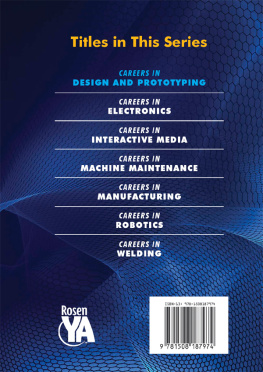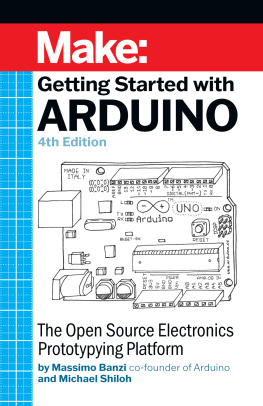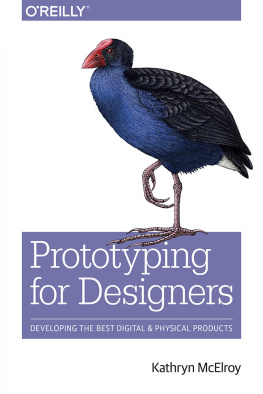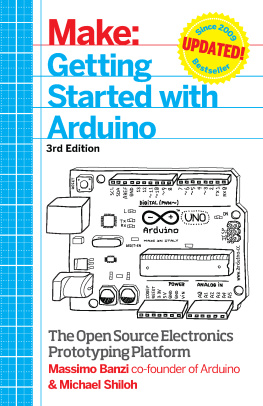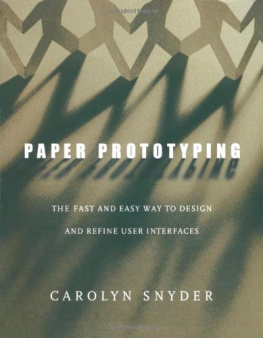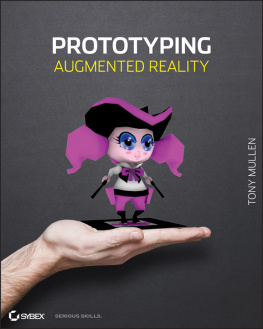
Prototyping Cultures
Prototypes have acquired much prominence and visibility in recent times. Software development is perhaps the case in point, where the release of non-stable versions of programmes (beta versions) has become commonplace, as is famously the case in free and open-source software. Prototyping has also become an important currency of explanation and description in arttechnology contexts, where the emphasis is on the productive and processual aspects of experimentation: medialabs, hacklabs, community and social art collectives, dorkbots, open collaborative websites or design thinking workshops are spaces and sites where prototyping and experimentation have taken hold as both modes of knowledge production and cultural and sociological styles of exchange and interaction. Experimentation has also been at the centre of recent reassessments of the organisation of laboratory, expert and, more generally, epistemic cultures in the sciences. An interesting development is the shift in emphasis from the experimental as a knowledge site to the experimental as a social process.
This book brings some of the leading scholars in the fields of anthropology, social studies of science and technology, and critical design thinking, in a theoretical and ethnographic dialogue to explore the affordances of the prototype as a figure of our contemporary. This book was originally published as a special issue of the Journal of Cultural Economy.
Alberto Corsn Jimnez is an Associate Professor in Social Anthropology at the Spanish National Research Council in Madrid, Spain. He is the author of An Anthropological Trompe lOeil for a Common World (2013) and the editor of Culture and Well-being: Anthropological Approaches to Freedom and Political Ethics (2008) and The Anthropology of Organisations (2007). His current work examines the development of open-source urban hardware projects by architects, artists and engineers.
Prototyping Cultures
Art, Science and Politics in Beta
Edited by
Alberto Corsn Jimnez
First published 2017
by Routledge
2 Park Square, Milton Park, Abingdon, Oxon, OX14 4RN, UK
and by Routledge
711 Third Avenue, New York, NY 10017, USA
Routledge is an imprint of the Taylor & Francis Group, an informa business
2017 Taylor & Francis
All rights reserved. No part of this book may be reprinted or reproduced or utilised in any form or by any electronic, mechanical, or other means, now known or hereafter invented, including photocopying and recording, or in any information storage or retrieval system, without permission in writing from the publishers.
Trademark notice: Product or corporate names may be trademarks or registered trademarks, and are used only for identification and explanation without intent to infringe.
British Library Cataloguing in Publication Data
A catalogue record for this book is available from the British Library
ISBN 13: 978-1-138-69374-6
Typeset in Myriad Pro
by diacriTech, Chennai
Publishers Note
The publisher accepts responsibility for any inconsistencies that may have arisen during the conversion of this book from journal articles to book chapters, namely the possible inclusion of journal terminology.
Disclaimer
Every effort has been made to contact copyright holders for their permission to reprint material in this book. The publishers would be grateful to hear from any copyright holder who is not here acknowledged and will undertake to rectify any errors or omissions in future editions of this book.
Contents
Alberto Corsn Jimnez
George Marcus
Michael Guggenheim
Javier Lezaun and Nerea Calvillo
James Leach
Alex Wilkie
Alberto Corsn Jimnez, Adolfo Estalella and Zoohaus Collective
The chapters in this book were originally published in the Journal of Cultural Economy, volume 7, issue 4 (November 2014). When citing this material, please use the original page numbering for each article, as follows:
The prototype: More Than Many and Less Than One
Alberto Corsn Jimnez
Journal of Cultural Economy, volume 7, issue 4 (November 2014) pp. 381398
Prototyping and Contemporary Anthropological Experiments with Ethnographic Method
George Marcus
Journal of Cultural Economy, volume 7, issue 4 (November 2014) pp. 399410
From Prototyping to Allotyping: The Invention of Change of Use and the Crisis of Building Types
Michael Guggenheim
Journal of Cultural Economy, volume 7, issue 4 (November 2014) pp. 411433
In the Political Laboratory: Kurt Lewins Atmospheres
Javier Lezaun and Nerea Calvillo
Journal of Cultural Economy, volume 7, issue 4 (November 2014) pp. 434457
Choreographic Objects: Contemporary Dance, Digital Creations and Prototyping Social Visibility
James Leach
Journal of Cultural Economy, volume 7, issue 4 (November 2014) pp. 458475
Prototyping as Event: Designing the Future of Obesity
Alex Wilkie
Journal of Cultural Economy, volume 7, issue 4 (November 2014) pp. 476492
The Interior Design of [Free] Knowledge
Alberto Corsn Jimnez, Adolfo Estalella and Zoohaus Collective
Journal of Cultural Economy, volume 7, issue 4 (November 2014) pp. 493515
For any permission-related enquiries please visit:
http://www.tandfonline.com/page/help/permissions
Nerea Calvillo is an Assistant Professor at the Centre for Interdisciplinary Methodologies, University of Warwick, UK.
The Zoohaus Collective is a creative working platform that started in Madrid in 2007. Zoohaus studies network working systems and collaborative work among several actors, and tries to develop projects focused on the re-consideration of urban flows and with diverse study topics as community participation, urban reactivation, collective intelligence or public space.
Alberto Corsn Jimnez is an Associate Professor in Social Anthropology at the Spanish National Research Council in Madrid, Spain.
Adolfo Estalella is a Postdoctoral Researcher at the Spanish National Research Council in Madrid, Spain.
Michael Guggenheim is a Reader in Sociology at Goldsmiths, University of London, UK.
James Leach is a Professor of Anthropology and Sociology at the University of Western Australia, Perth, Australia.
Javier Lezaun is the Deputy Director of the Institute for Science, Innovation and Society at the Oxford Martin School, University of Oxford, UK.
George Marcus is Chancellors Professor and Chair of the Department of Anthropology at the University of California, Irvine, USA.
Alex Wilkie is a Senior Lecturer in Design and Director of the Centre of Invention and Social Process at Goldsmiths, University of London, UK.
INTRODUCTION
The prototype: more than many and less than one
Alberto Corsn Jimnez
The essay offers an introduction to the special issue and further attempts to situate the concept of the prototype within the larger field of an anthropology of prefiguration. I make a particular claim for the rise of prototyping as a cultural discourse today, in design, engineering and artistic circles but also among analogous experimental moments in social studies of science and critical theory. I focus in particular on the affordances of the prototype as material culture and sociological theory: prototyping as something that happens to social relationships when one approaches the craft and agency of objects in particular ways. Last, the essay examines the work that prototypes do as figures of suspension and expectation, where they can be seen to function as traps for the emergence of compossibility. They offer in this guise a design for contemporary complexity that is at once more than many and less than one


